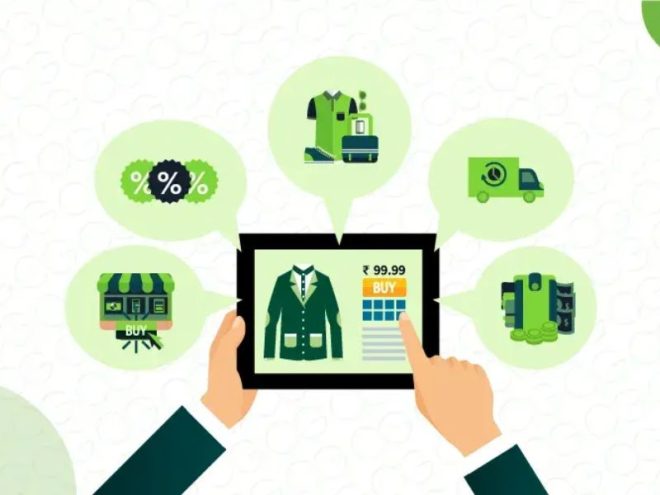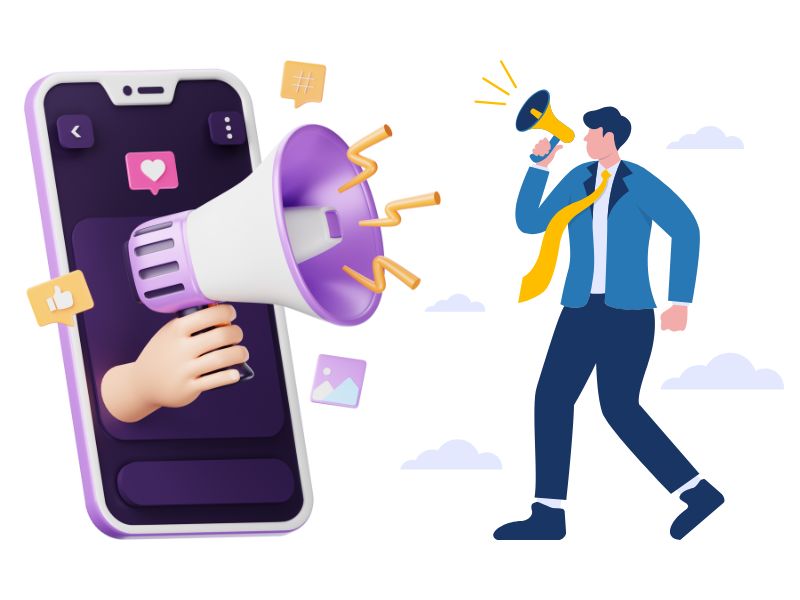Retail Management Software: Types, Benefits, Features & More
As several businesses use retail management software tools, the demand for these tools is high worldwide. Their features are suitable for every type of business, making them top choices. This comprehensive guide explores information about retail management tools, their benefits, types, and how to choose the best software.
Read this blog to learn about the retail management system, its types, benefits, and more.
What is retail management software?
Before delving into retail management software, it’s essential to understand it. Here is the information about retail management software.
Retail management software is a powerful tool for streamlining and automating various aspects of retail operations. It encompasses excellent features like customer relationship management (CRM), point of sale (POS), inventory management, and analytics. Their features suit businesses of all sizes and manage their retail operations more efficiently than before. Start a search today to learn about retail management solutions.
Benefits of Retail Management Software Tools
As retail management software tools have emerged into a new era of retail businesses, the demand for these solutions is high worldwide. They provide many benefits, making them top choices for retail organizations and businesses. Here are the most common benefits of retail management platforms.

Enhanced Efficiency
One of the most common benefits of using retail management tools is that they take less time to streamline retail operations.
Retail management systems take less time to streamline and automate day-to-day tasks like order processing and inventory tracking, freeing up businesses’ staff for more strategic planning.
Improved Inventory Management
These solutions offer real-time visibility into inventory levels, helping retail businesses prevent stockouts and overstock and optimize purchasing decisions.
Enhanced Customer Experience
These tools enable businesses to create personalized marketing campaigns, loyalty programs, and targeted promotions based on customer purchase preferences and history.
Faster Customer Service
Another benefit of retail management tools is that they provide faster customer service than other tools. They speed up the checkout process with the most crucial features like integrated payment processing and barcode scanning, helping retail businesses make their customer service faster and easier than ever.
Make Informed Decision
Retail management tools provide valuable insights through features like analytics and reporting, assisting retail businesses in identifying trends, optimizing pricing, and making informed decisions.
Help Reduce Operational Costs
Retail management tools are affordable for every retail business because they don’t charge any additional upfront fees. They minimize errors, reduce manual labor, and streamline workflows, reducing operational costs.
Security
These tools protect sensitive customer and business data with robust security measures, making them ideal for many retail businesses.
Apart from this, there are many benefits of using retail management systems.
Types of Retail Management Software
Here are the most common types of retail management software tools.
Inventory Management Software
It is a crucial type of retail management system designed to monitor product movement, track stock levels, and generate reports on inventory performance. It helps retail businesses optimize purchasing decisions, prevent stockouts, and reduce shrinkage.
Point of Sale (POS) Software
POS software is another tool for retail businesses. It handles transactions at the checkout counter, processes payments, generates receipts, and tracks sales. This type of retail management tool may include features like customer loyalty programs, inventory management, and employee management.
Customer Relationship Management (CRM) Software
CRM software is a popular tool for retail businesses. It helps retail organizations collect and analyze customer data to personalize marketing efforts. It also manages customer interactions, identifies customer preferences, and tracks purchase history. Several retail firms use CRM systems because CRM tools enable them to target promotions and personalize customer service.
Enterprise Resource Planning (ERP) Software
ERP software is a type of retail management system. It integrates various business functions like supply chain management, finance, and HR. It helps retail firms provide a comprehensive view of the entire retail operation. Additionally, ERP tools help optimize resource allocation and streamline operations, making them ideal for retail management.
Mobile Retail Management Software
Mobile retail management software tools are the types of retail management. They provide optimal access to remote retail functions such as order processing, inventory management, and customer data. These systems use advanced technology to provide real-time insights and decision-making capabilities.
E-commerce Software
E-commerce software is a part of retail management software tools. These tools help retail businesses manage online store operations, including shopping carts, product catalogs, and checkout processes. They can also integrate with other tools like inventory and order management systems, making them the best solutions for retail management businesses.
Analytics and Reporting Software
Analytics and reporting software tools help businesses collect and analyze data from multiple sources to generate insights into business performance. These tools are the best sources for retail firms because they provide them with accurate reports on sales and inventory.
How To Choose The Right Retail Management Software?
With so many options in retail management software available on the market, choosing the right software can be challenging. Below are things to consider when choosing the right retail management tool.
Understanding Your Business Needs
Before deciding on software, it is essential to understand the needs and requirements of your business.
Check out Software’s Scalability and Flexibility
When selecting the ideal retail management system, consider its scalability and flexibility. Opt for software that provides your retail firm with complete scalability and flexibility.
Consider Core Functionalities
Checking the core functionalities of software is a smart thing to consider when choosing the perfect software. Point of Sale (POS), inventory management, CRM, employee management, and analytics and reporting are the most common core functionalities of retail management systems. Consider these functionalities before selecting software.
Check Vendor Reputation and Support
After checking the core functionalities of the software, it is essential to check vendor reputation and support like vendor reliability, customer support, and training and implementation.
Make a Decision on Software
After considering these factors, you can decide on a retail management tool that efficiently and quickly streamlines and automates retail operations.
In a Nutshell:
Retail management systems are in high demand worldwide because they help retail businesses streamline and automate routine operations efficiently and rapidly. This is a guide to retail management software tools. Start a search today to understand retail management systems.
Searchandask write on education, business, jobs, and even more.



